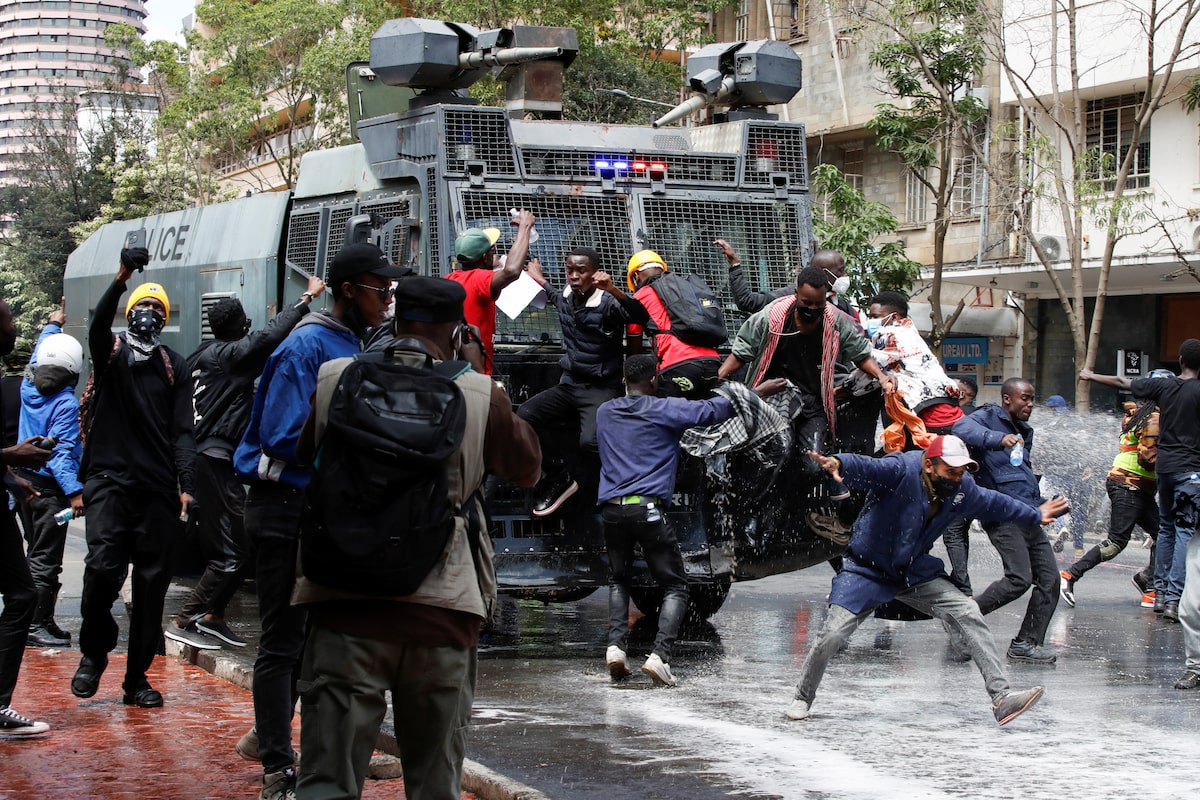Kenya firms on edge as report flags political unrest as top 2026 threat

According to the report, companies that suffered security breaches linked to unrest or fraud experienced significant financial losses, with nearly half (45 per cent) reporting revenue hits.
Kenyan companies are preparing for a tense business environment in 2026, with political instability and civil unrest emerging as their biggest fears, according to a new global study.
The World Security Report 2025 by Allied Universal and G4S shows that businesses expect next year to be shaped more by social and political tensions than by economic shocks, following months of Gen Z-led demonstrations across the country.
More To Read
- KANU Youth Congress denounce Ruto-Moi pact, say deal unilateral
- Jimi Wanjigi promises government overhaul if elected president
- IEBC seeks UN backing to strengthen electoral systems ahead of 2027 polls
- Saboti MP Caleb Amisi: Youths must register as voters or stop complaining
- Gachagua proposes constituency-level declaration of presidential results to boost transparency
- Nairobi leaders launch initiative to rally youths to register as voters ahead of 2027 polls
The findings reveal that 45 per cent of chief security officers (CSOs) in Kenya consider political instability their main risk, while 43 per cent cite civil unrest as a close second.
These figures stand higher than the average across Sub-Saharan Africa, highlighting the scale of corporate unease ahead of another election cycle.
About 21 per cent of companies anticipate being directly impacted by protests in the next 12 months, the highest proportion in the region, the report shows.
Despite these concerns, there is a slight drop in fears over economic instability, which has declined to 41 per cent from 52 per cent last year.
However, financial fraud remains a pressing issue, identified by 41 per cent of businesses as the top external threat, largely tied to economic pressure and weakened controls.
Laurence Okelo, managing director of G4S Kenya, said the country’s business leaders are taking no chances.
“Political and civil unrest can have an immediate and costly impact on businesses and investor confidence, and security leaders are preparing to bolster their physical security programmes in response,” he said.
He noted that while easing economic uncertainty brings a degree of optimism, companies must remain vigilant.
“The predicted easing of economic instability provides some room for optimism, but companies must continue building resilience through security upgrades, workforce safety and contingency planning,” Okelo added.
To mitigate the risks, 79 per cent of Kenyan firms plan to increase their security budgets, focusing heavily on technology and infrastructure (83 per cent), comprehensive risk assessments (71 per cent), and tighter regulatory compliance (66 per cent).
The report draws from a global survey of 2,352 chief security officers representing medium and large enterprises with combined annual revenues exceeding $25 trillion, including 58 participants from Kenya and 174 from across Sub-Saharan Africa.
It also includes insights from 200 institutional investors overseeing assets worth more than $1 trillion (about Sh130 trillion), offering a global view of business resilience priorities.
According to the report, companies that suffered security breaches linked to unrest or fraud experienced significant financial losses, with nearly half (45 per cent) reporting revenue hits.
Retail and hospitality sectors were among the hardest hit following the recent waves of Gen Z protests that disrupted business operations nationwide.
Top Stories Today










































